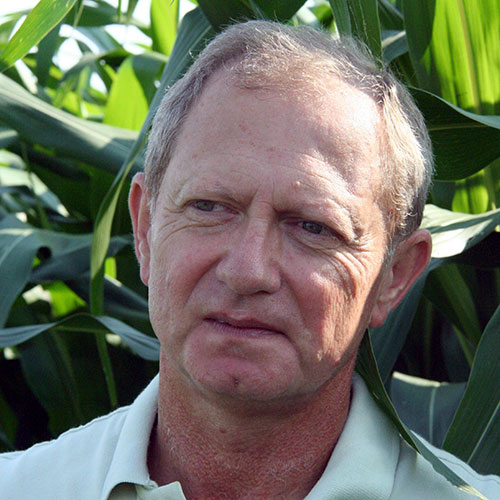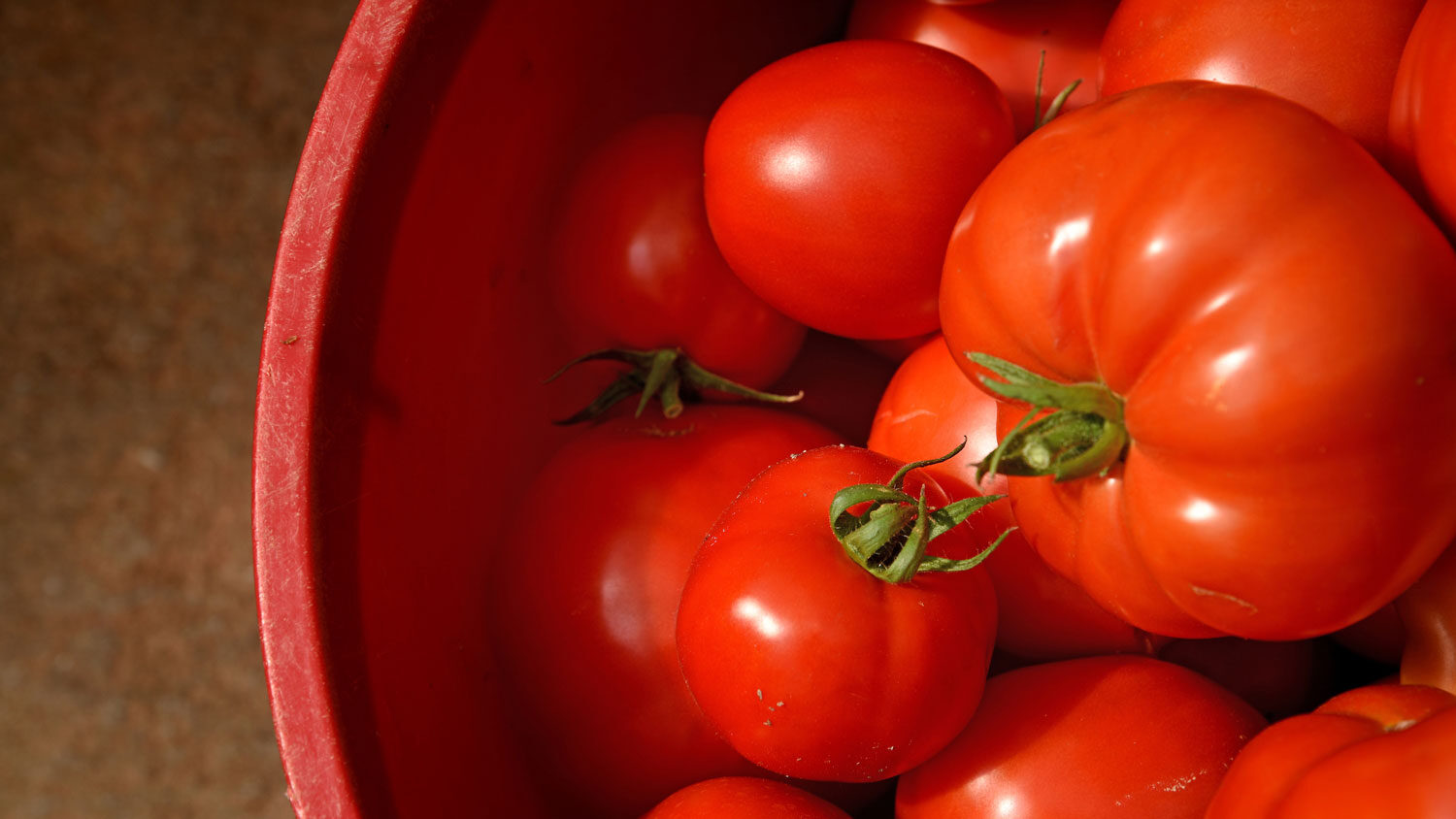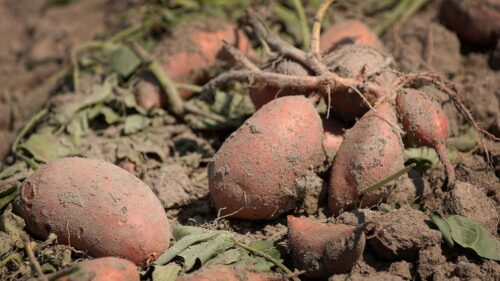International Plant Breeding Seminar Series

International Plant Breeding Seminar Series
NC State University’s Plant Breeding Consortium is pleased to announce its seventh virtual seminar series on International Plant Breeding.
Building a Global Platform
The spring series will consist of six virtual seminars over the course of consecutive weeks beginning March 28 – May 2, 2024, on Thursdays from 11:00 am to 12:00 pm EST.
Our goal is to build a platform that would bring together a global community of persons directly or indirectly working in plant breeding, or with just the interest to learn about what is fueling plant breeding in different parts of the world. We would appreciate your help in forwarding this invitation to other colleagues and institutions that might be interested in attending or participating.

Please distribute in your respective institutions and with other colleagues. We look forward to your participation.
Dr. Carlos Iglesias, Director
Connecting plant breeders through
our international online seminar series
Scheduled Seminars
March 28, 2024
Dr. David Marshall (USDA/NC State University) Forty years of breeding wheat Internationally
April 4, 2024
Dr. Rony Swennen (International Institute of Tropical Agriculture) Going bananas with bananas: Breeding a sterile crop for African Smallholders
April 11, 2024
Dr. Margaret Leigh Worthington (University of Arkansas) A Tale of Two Fruit Crops: How Plant Breeding has Contributed to the Growth of Fresh Market Blackberry and Muscadine Industries
April 18, 2024
Dr. Patrick Cumbie (ArborGen) Gain vs Risk: Making genetic improvements in forest trees.
April 25, 2024
Dr. Ramakrishnan M. Nair (World Vegetable Center) Learning from Breeding Mungbeans within an International Network.
May 2, 2024
Dr. Gustavo Rodriguez (Universidad Nacional Rosario, Argentina) Exotic Genes to the Major Hort Crop

Fund Our Work
Support our efforts to advance international plant breeding research, education, and outreach.
Funds supporting the International Plant Breeding Enhancement Fund are collected and managed by The North Carolina Agricultural Foundation, Inc., a 501(c)3 non-profit, tax id 56-6049304. You will receive an official receipt for your donation.
Spring 2024 Speakers
Dr. David Marshall
Dr. David Marshall is a retired Research Leader from the US Department of Agriculture (USDA) Agricultural Research Service (ARS) and NC State emeritus professor. Research areas include breeding and genetics of small grain crops (wheat, oat, barley, and triticale) for disease resistance. The focus was on the introgression of disease resistance from wild species into adapted genotypes. Marshall and his fellow USDA collaborators received the 2020 Gene Stewardship Award from the Borlaug Global Rust Initiative. Their research team contributions “have led to a diverse range of strategies to introduce and improve resistance to stem rust—particularly Ug99, a highly virulent disease first identified in East Africa in 1998.”
Dr. Rony Swennen
Dr. Rony Swennen obtained his PhD at KU Leuven, Belgium in 1984. After a brief research stay in the Canary Islands, Spain, he joined IITA in 1979 as the first scientist at IITA’s Highrainfall substation, Onne, Nigeria. There he started plantain research initially focusing on physiology in support of agronomy, and taxonomy. He initiated and run the plantain breeding programme that resulted in black sigatoka resistant plantain for which IITA was awarded the International King Baudouin Award. He collected worldwide banana and plantain varieties that laid the basis for the International Transit Centre of banana, Leuven, Belgium. In 1990 he became Senior lecturer at KU Leuven and by 1997 full professor. His Laboratory of Tropical Crop Improvement hosts the world banana collection, now the Alliance of CIAT and Bioversity International, with collaborations in 103 countries. Cryopreservation techniques were developed for banana and later for another 27 plant species. His group developed also the first transgenic bananas in the early 90s with field tests in 2 locations. He is a strong believer in phenotyping and therefore initiated a proteomics and transcriptomics platform. In 1995 he became member of the Royal Academy, Belgium and Honorary Research Fellow of Bioversity International. He received several international awards and a chieftaincy in Nigeria. Since February 2013 he leads the banana breeding program at IITA. The matooke breeding is done in Uganda, the mchare breeding in Tanzania and the plantain breeding in Nigeria. He leads a team of +60 staff. Research-index 62; Google scholar: h-index 73
Dr. Margaret Leigh Worthington
Dr. Margaret Worthington is an Associate Professor at the University of Arkansas, Bumpers College of Horticulture. Worthington’s primary research interest is the development of improved blackberry, peach, nectarine, and muscadine grape cultivars. She also leads research on fruit genetics and molecular breeding and is especially interested in answering questions that lead to the development of molecular tools and modern breeding methods that will accelerate genetic gain and strengthen applied cultivar development programs.
Dr. Patrick Cumbie
Dr. Patrick Cumbie is the Director of Product Development at ArborGen Inc. He has been involved in forest research and development for 23 years and has largely focused on planning and implementing accelerated breeding programs in loblolly pine. Before joining ArborGen in 2010, Cumbie was a research forester for Weyerhaeuser Company and worked for the Cooperative Tree Improvement Program at NC State University. In his current role, Cumbie is responsible for managing product development activities in the US and Brazil including breeding, seed production, and genomics. He received his PhD in Forestry from NC State University and is an Adjunct Assistant Professor in the Department of Forestry & Environmental Resources.
Dr. Ramakrishnan Nair
Ramakrishnan (Ram) M. Nair (India) leads the WorldVeg global legume breeding program and the International Mungbean Improvement Network (IMIN). Ram has over 30 years of experience in managing and leading national and international projects. He began his career in 1986 as an Agricultural Officer (Extension) in the Department of Agriculture, Government of Kerala, India. He received his PhD with a specialization in plant breeding from Kerala Agricultural University, India. Ram spent ten years as a forage breeder at the South Australian Research and Development Institute (SARDI) in Adelaide and four years at the Department of Natural Resources and Environment, Victoria, Australia. There he researched a range of plant species including Medicago, Trifolium, Trigonella, Melilotus, Lolium and Atriplex. In 1998, Ram was seconded to the Institute of Grassland and Environmental Research, Aberystwyth, UK. He completed a Professional Management Program from the School of Business, University of Adelaide in 2010. Ram completed a course in 2019 on gender-responsive plant breeding organized by Makerere and Cornell Universities as part of their Gender-responsive Researchers Equipped for Agricultural Transformation (GREAT) project. His extensive publication record includes 120 peer-reviewed journal articles, 75 conference papers and 13 book chapters. He is a member of the International Legume Society, serves as the Regional Secretary (India) for the Society for Advancement of Breeding Research in Asia and Oceania (SABRAO), and is a member of the Editorial Board for the SABRAO Journal of Breeding and Genetics. In 2008, he won the SARDI Breakthrough Innovation Award and in 2018, Ram and his team won the WorldVeg Science of Excellence Award for their work on mungbean.
Dr. Gustavo Rodriguez
Dr. Gustavo Rodriguez works at the Instituto de Investigaciones en Ciencias Agrarias de Rosario (IICAR – CONICET – UNR), National Scientific and Technical Research Council in Argentina. Genetics and Plant Breeding are his expertise with a focus on tomato fruit traits. Rodriguez is also Professor at Facultad de Ciencias Agrarias, Universidad Nacional de Rosario.
Watch the Fall 2023 Seminar Series
Recent News
- 7th Biennial Plant Breeding SymposiumJoin the Plant Breeding Symposium on Thursday, February 1, 2024, in Talley Student Union. Five diverse speakers address “Breeding for Balance: Plant and Human Wellbeing”.
- All Hopped UpGet ready for a truly homegrown brew as breeders work to create hops plants that can thrive in North Carolina.
- A Patented WinnerThe National Academy of Inventors named NC State University’s Craig Yencho a 2023 fellow for his contributions to improved sweetpotato and potato breeding and genetics, with an impact reaching from North Carolina to Sub-Saharan Africa.
